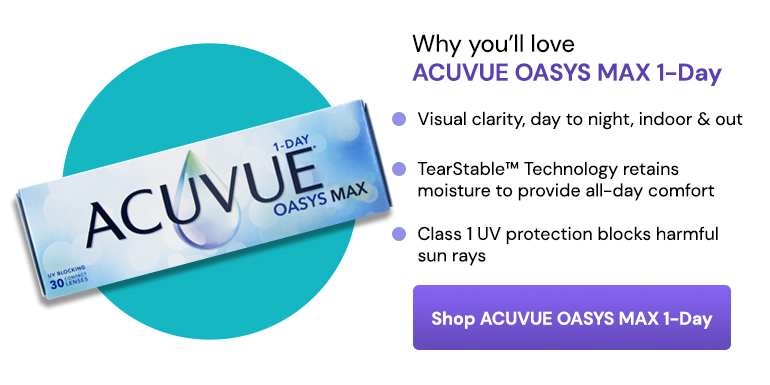A student's guide to contact lens care
Convenient and comfortable, contact lenses offer many benefits for students. However, in order to enjoy these freedoms, you need to practice proper lens care.
With late nights and busy study schedules, it’s easy to let healthy habits fall by the wayside, yet cutting corners on eye hygiene raises the risk of serious eye infections, and in very severe cases, vision loss.
As you head back to your halls, keep your contact lens care in check with these safety tips...
Never shower or swim in lenses
Water can carry all sorts of pathogens and parasites, the most dangerous being acanthamoeba, which attaches to your contact and works its way into the cornea. To avoid contracting dangerous infections, students should avoid swimming or showering in their lenses. In fact, contact lenses should not be exposed to any type of water, including tap water, swimming pools, oceans, lakes, hot tubs and showers. Even in chlorinated water, dangerous bacteria and other organisms can thrive.
Don’t share makeup
While it may seem harmless, sharing eye makeup like mascara, eyeliner and eyeshadow is a surefire way to spread infections like viral conjunctivitis. Stick to your own products and swap out your old makeup for new items every three months. See our guide on protecting your eyes when wearing makeup for more tips.

Wash your hands regularly
University halls and crowded classrooms can be a breeding ground for germs and bacteria. Students should wash their hands thoroughly with soap and water before handling their contact lenses and avoid touching their eyes throughout the day.
Avoid smoking
Studies have shown a strong link between smoking and the development of age-related macular degeneration and cataracts. Smokers are also more likely to suffer from dry eye, so it’s time to kick the habit.
Store & clean lenses properly
Properly storing and cleaning contact lenses is the easiest way to reduce the risk of infection.
The key to keeping reusable contact lenses clean is to “rub and rinse” the lenses before storing them in fresh solution. Though it’s tempting, never use tap water or bottled water as a substitute for contact lens solution.
Your case needs to be as clean as your contacts to avoid biofilms or other bacteria building up and infecting your lenses. It’s recommended that you replace your contact lens case at least once every three months.
Many students choose to pay more for the convenience of daily disposable contacts. With daily disposables, you can simply remove and discard the lens at the end of a full day’s wear, without the fuss of cleaning or carrying solution.
Stick to your contact lens schedule
Many people are guilty of wearing their lenses longer than the prescribed period. Yet, leaving your lenses in for too long, or worse yet, sleeping in them, can cause complications with your eyesight.
When contact lenses are worn for an extended time, they significantly reduce the amount of oxygen reaching the eye. Without oxygen, the cornea swells and becomes susceptible to pathogens and other bacteria entering the eye and causing infection. Symptoms of over-wearing lenses include pain, blurred vision, red eyes and excessive tearing.
If you’re unsure about the recommended wear time of your contacts, check the packaging or contact your optometrist.
Take a break from screen time
Blinking spreads that all-important tear film across your eyes, keeping the surface wet, washing away dirt and reducing the risk of infection. Staring at a screen for long periods of time can significantly reduce your blink rate, leading to dry, scratchy eyes. If you’re up all night studying or socialising, swap your contacts for specs. Your eyes will thank you for it.
Consider switching to daily disposables
Convenient and comfortable, daily disposables are considered a healthy choice for teens and students since you can sidestep the cleaning process entirely.




